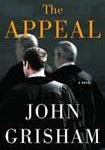More on Caperton
 In a comment following Ed Fallone’s post on Chief Justice Robert’s little list (actually it as a rather long list), he argues that there is little in the text, structure and history of the Bill of Rights that might inform the question of when the due process clause requires a judge to recuse herself because of the potential for bias associated with campaign contributions:
In a comment following Ed Fallone’s post on Chief Justice Robert’s little list (actually it as a rather long list), he argues that there is little in the text, structure and history of the Bill of Rights that might inform the question of when the due process clause requires a judge to recuse herself because of the potential for bias associated with campaign contributions:
It may very well be that something like “judicial bias” is undefinable without reference to some background principles derived from the constitutional design. Unfortunately, I believe that the direct election of judges was a reform associated with Jacksonian theories of democracy, and therefore the relevant state laws post-date the Bill of Rights. Without any relevant evidence of original intent on the question of when a judge is tainted by campaign contributions, I am willing to rely on Mike McChrystal’s common sense approach: the perception of bias in this case was too obvious for the Court to ignore.
He’s right about state judicial elections. If I recall correctly, they began with Mississippi in 1832. I agree that Mike McChrystal does capture something important about why the majority acted in the way it did, but I think that it might be not simply a judicial gag reflex. I think there may be some instruction to be found in the structure of the constitution. I’m still thinking on it, but it might go something like this.

 In an
In an  The Supreme Court ruled yesterday in Caperton v. A.T. Massey Coal Company that the Due Process Clause of the United States Constitution is violated by the refusal of a judge to recuse herself when the disproportionate campaign contributions of a litigant on behalf of that judge create a serious, objective risk of actual bias.
The Supreme Court ruled yesterday in Caperton v. A.T. Massey Coal Company that the Due Process Clause of the United States Constitution is violated by the refusal of a judge to recuse herself when the disproportionate campaign contributions of a litigant on behalf of that judge create a serious, objective risk of actual bias.